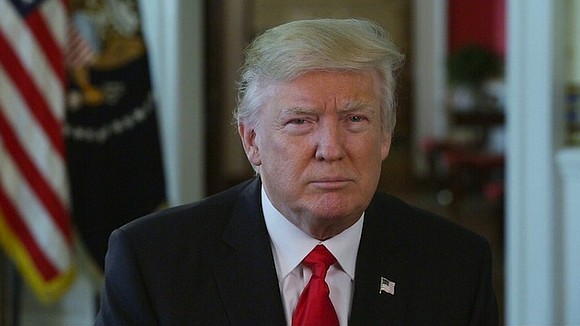Trump is not evil, just an amateur
CNN/Stylemagazine.com Newswire | 7/18/2018, 10:30 a.m.
By Timothy Stanley
(CNN) -- Sometimes, I'm more alarmed by people's exaggerated reactions to Donald Trump than by Trump himself. It's the cult of exceptionalism. When Barack Obama was in charge, we were told that everything he did was a "first." Now that Trump runs things, everything he does is the "worst." And finally, with that Helsinki, Finland, press conference with Vladimir Putin, he seems to have provoked the GOP to join the hyperbole.
Now we know what constitutes a step too far for Republicans. Not banning most trans people from the military nor splitting up families at the border nor cutting taxes for the super rich. No, it's being nice to Russia.
This despite the fact that it's what practically every postwar Republican president has tried to do. In the 1968 election, Richard Nixon extended "the hand of friendship" to the USSR. In 1975, Gerald Ford also went to Helsinki, and signed an accord that recognized the territorial integrity of communist dictatorships. In 1984, Ronald Reagan offered "peace, cooperation and communication" to the Soviets. In 2001, George W. Bush met Putin, looked into his eyes and "got a sense of his soul." Bush said: "I found him to be very straightforward and trustworthy."
Trump's mistakes are not unheard of, some of his policies are familiar. He's been criticized in the last few days for demanding that NATO allies raise defense spending. Why? It's a reasonable request. And Nixon tried it, too, in the '70s -- the so-called Nixon doctrine asked, in part, for the Europeans to spend more and shoulder America's burden.
As for the reaction to Trump's press conference, to call it an exaggeration is, well, an understatement. It's been likened to 1938 Munich, compared in moral depravity to the Kristallnacht in Nazi Germany, and in a ridiculous tweet by Garry Kasparov, the chess champion and human rights activist, called "the darkest hour in the American presidency."
Really? Are we going to put aside all of American history so we can claim this, right now, is its darkest hour? Are we to forget that previous presidents interned Japanese-American citizens? Or drove the Native Americans off their lands? Or endorsed racial segregation? Or supported a war in Vietnam based upon falsehoods that even Trump doesn't have the imagination to dream up?
Barack Obama on Tuesday gave a speech in South Africa in which he claimed that the difference between now and the past is that today when politicians are caught lying, they just go on lying. Does he really think this is new? Is he unaware that Nixon denied America was at war in Cambodia even as he dropped more tonnage on that tiny country than was dropped by the Allies during the entire Second World War?l
And if Trump's meeting with Putin truly shocks you, I urge you to Google photos of Jimmy Carter meeting the Shah of Iran. Or Donald Rumsfeld shaking hands with Saddam Hussein. Both these tyrants were once considered friends or partners with the United States, much as Reagan once described the Contras -- who were accused of kidnap, rape and torture in the Nicaraguan civil war -- as "the moral equal of our founding fathers."
Trust me, America has seen many Munichs, all of them just as morally compromising as Trump's with Putin.
Several dozen wrongs do not, of course, make a right. At his Putin press conference, Trump effectively took Putin's side against the American intelligence services, doing immense damage to US prestige and security. He rowed back a little the next day, conceding that he might have misspoken, that there was interference in 2016 -- but in a wriggly, unconvincing tone that implies he knows he's made a poor judgment but won't confront it honestly (something about saying "would" when he meant "wouldn't").
Trump is not a Russian agent, and we have no reason to believe he's being blackmailed; the psychological truth is probably that Trump cannot accept that Moscow played a role in the election victory he is so proud of -- with or without the Trump campaign's knowledge -- and so he prefers to believe that his own nation's agencies are in error.
This is not about Trump being an evil man, it's about him being an amateur, which is one of the qualities that won him votes.
Trump was elected as an anti-politician who would disrupt a broken order and even take risks. Sometimes they pay off: bringing Saudi Arabia and Israel together and tempting Kim Jong Un out from beneath his rock are all great steps forward. Other times, the President finds himself underprepared and out of his depth. Putin is a proven liar and manipulator, and while Trump may well be a master of deal-making, he simply isn't operating at the level Putin does.
Nevertheless, let's please not descend into panic. Trump encourages us to see everything as a big battle with winners and losers -- and yes, there are things worth standing up for. But look beyond the sensationalized, Trump-style rhetoric that everyone seems to indulge in nowadays to the quiet, sober, behind-the-scenes truth.
The Trump administration is perfectly tough on Russia. It has expelled Russian diplomats, attacked Moscow's ally in Syria (the US military also killed hundreds of Russian mercenaries in Syria in February), raised US defense spending and given arms to Ukraine. There's a lot that's revolutionary and unstable about Trump -- a lot, however, that stays the same.










